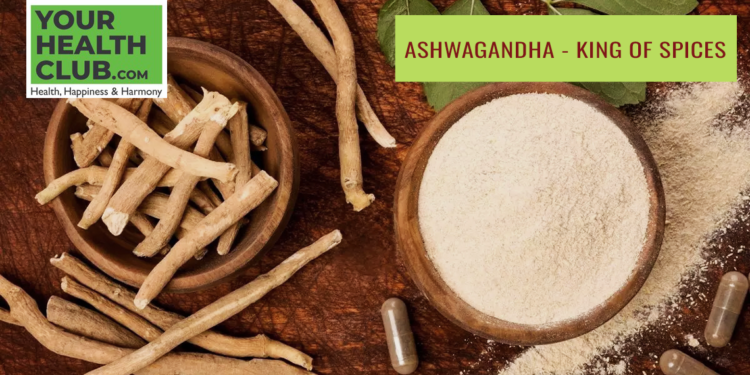Ashwagandha – King of Herbs
Did you find this post while searching for answers to your numerous
health issues? Are you looking for treatments to reduce some stress and
anxiety? Or perhaps you were curious after hearing about Ashwagandha’s enchanted
revitalizing properties.
Whatever it may be, you’ve come to the right spot since this article
will provide you all the information you need about Ashwagandha, one of the
most potent Ayurvedic herbs.
Ashwagandha is a green, leafy shrub that thrives in arid areas of India
like Madhya Pradesh and Punjab. We like to refer to it as the “chill
pill” of traditional Ayurvedic plants. Ashwagandha is frequently referred
to as “Indian ginseng” despite having no connection to the plant
since it is handled similarly in Ayurveda, the Indian system of medicine, to
how ginseng is treated in traditional Chinese medicine. The reason for this is
that ashwagandha is a well-known rasayana, a restorative plant that simultaneously
calms and stimulates the mind.
What medical use does ashwagandha have?
We discussed how the Ashwagandha shrub’s entire body is incredibly
beneficial. So let’s start with the most popular way to consume Ashwagandha,
which is as churna. Did you know that the famous Ashwagandha churna is made
from the plant’s roots? It can also be made into a paste by mixing it with
water, ghee, or honey.
The advantages of this powder are countless. The powder is most
frequently used to treat illnesses including leucoderma, constipation,
sleeplessness, rheumatism, neurological breakdown, goitre, and more. To relieve
pain and inflammation in the joints, a paste made from the powder is also
administered.
Despite the fact that there are many distinct variants of ashwagandha,
the Nagori Ashwagandha is the best. Ashwagandha powder must only be fresh for
the greatest advantages.
The shrub’s other portions are also very beneficial.
For instance, iron-rich Ashwagandha leaves can be used to make herbal
tea despite their bitter flavor. They aid in the treatment of illnesses like
anemia and blood loss brought on by heavy periods. Ashwagandha leaves are used
to make a herbal tea that boosts energy and reduces fever and uncomfortable
swellings.
The flowers have aphrodisiac, diuretic, astringent, and depurative
properties. In order to clear up white spots on the cornea, the seeds are
combined with an astringent and rock salt since they are anthelmintic (helps
kill parasitic worms). Hysteria, anxiety, memory loss, syncope, and other
conditions are treated with Ashwagandharishta, an Ashwagandha health tonic made
from its seeds.
Isn’t it fascinating to learn how one shrub can be so helpful?
Benefits of Ashwagandha for health
For Anxiety:
As an adaptogen, ashwagandha aids in the body’s capacity to withstand
stress. It can improve mental performance and lessen the effects of despair and
anxiety. This herb can help persons with stress and anxiety disorders by
reducing their symptoms, according to several well-controlled human research.
In a 60-day study of individuals with chronic stress, those who took
ashwagandha supplements reported an average 69% decrease in anxiety.
For preventing and healing acne:
The antibacterial and antimicrobial properties of ashwagandha root help
to shield the skin from infections and acne. Additionally, it increases the skin’s
collagen levels, preventing aging. Try using natural face packs with
Ashwagandha powder if you have acne. This eliminates blackheads and pimples, lightens scars, evens out skin tone, and
treats inflammation.







